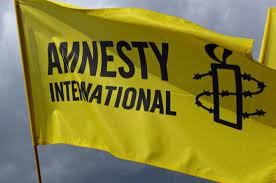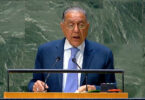NEW DELHI (AFP): India is exploiting recommendations by a global money-laundering watchdog as a “draconian” tool to shutter civil society groups and suppress activists and critics, Amnesty International said Wednesday.
Government critics within civil society organisations and the media have long complained of harassment in the world’s biggest democracy under Prime Minister Narendra Modi’s Hindu-nationalist administration, a charge it strenuously denies.
Amnesty said the recommendations of the Paris-based Financial Action Task Force (FATF) were being abused to bring in “draconian laws to stifle the non-profit sector” and block organisations from funding.
The 39-nation FATF, of which India has been a member since 2010, is mandated to tackle global money laundering and terrorist financing.
Critics say Modi’s government has sought to pressure rights groups by heavily scrutinising their finances and clamping down on foreign funding.
“Under the guise of combatting terrorism, the Indian government has leveraged the Financial Action Task Force’s recommendations to tighten its arsenal of financial and counter-terrorism laws which are routinely misused to target and silence critics,” Amnesty International India chair Aakar Patel said in a statement.
In the last 10 years, India has cancelled the licences of more than 20,600 non-governmental organisations, with nearly 6,000 of these taking place since 2022, the report said.
In 2020, Amnesty International had to suspend its Indian operations after its bank accounts were frozen.
The Indian government defended its move, accusing Amnesty of “illegal practices” involving the transfer of “large amounts of money” from Amnesty UK to India.
Journalists critical of the government also complain of increased harassment, both on social media — where Modi’s ruling party has a powerful presence — and in the real world.







